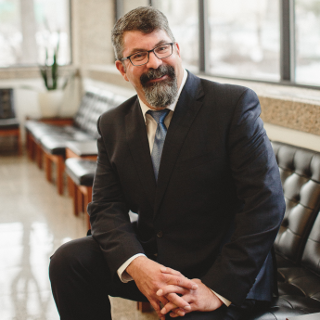Former dean a finalist in Canadian Lawyer Top 25 Most Influential list
Staff Writers - 14 June 2021

Professor Paul Paton, former dean of the University of Alberta Faculty of Law, will chair and speak on regulatory reform for the delivery of legal services at a webinar this month for the International Bar Association.
The June 28 event will delve into the “regulatory sandbox” pilot projects of Utah, British Columbia and Ontario, and Arizona’s alternative business structures, each of which permit non-traditional providers and investors to participate in the legal services marketplace.
Paton’s work on regulatory reform began in Canada in 1998. In 2019, he was appointed as an expert by the Arizona Supreme Court to its working group on alternative business structures and non-lawyer regulation in Arizona. The state introduced new rules on January 1.
That work, as well his 2021-24 appointment to the American Bar Association Standing Committee on Professional Regulation and the Lawyers and Leadership course he created at the U of A in 2020, has this month led to Paton being nominated for the Canadian Lawyer Top 25 Most Influential Lawyers list.
The nomination is in the Changemakers category. Voting continues until June 25.
In the U.S., Paton has been working on alternative business structures for legal services since 2010, when he was appointed for three years as Reporter to the ABA’s Ethics 2020 Commission to provide expert support to its Alternative Business Structures Working Group.
Both the ABA and the Arizona Supreme Court selected Paton for his experience with legal ethics and alternative business structures. As the only Canadian appointed to both the ABA Standing Committee on Professional Regulation and the Arizona Supreme Court working group, he has a unique influence on how the U.S. charts the future of legal ethics and its legal profession. His expertise was also recognized with an appointment to the International Bar Association’s Alternative and New Law Business Structure Committee in 2021.
Arizona Supreme Court
“There has been talk for decades about increasing access to justice but, until very recently, little or no real change to make it happen. Arizona has blown the doors open,” said Paton, referencing the caution other jurisdictions in both Canada and the U.S. have adopted in implementing structural changes to the regulation of legal services delivery.
The Arizona Supreme Court Working Group was tasked with developing rules to implement recommendations by the court’s Future of Legal Services Task Force. The working group advised on and drafted rule recommendations for the Court on alternative business structures, fee-sharing with non-lawyers, and legal service delivery by non-lawyers.
The new rules represent “the most radical reform to lawyer regulation in North America in recent memory,” said Paton.
While Utah and British Columbia have recently announced experiments with regulatory “sandboxes” and others are studying the possibility, “Arizona is the only North American jurisdiction to actually move ahead with rules to permit alternative business structures,” said Paton.
"It's a game-changer. The chance to help bar and judicial leaders in Arizona figure out how best to implement new ethics rules and to move concept to action was a privilege."
Since August 2020, Paton has also been serving a three-year appointment to the American Bar Association’s Standing Committee on Professional Regulation.
He is leading a multi-year study that began in 2015 on how legal services will be delivered in the future and how structures of lawyer regulation will have to adapt.
The committee's work dovetails with Paton's academic work at the University of Alberta Faculty of Law where he will be teaching Professional Regulation in 2021-22.